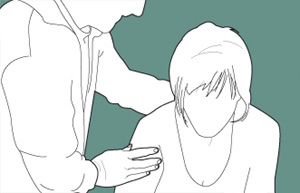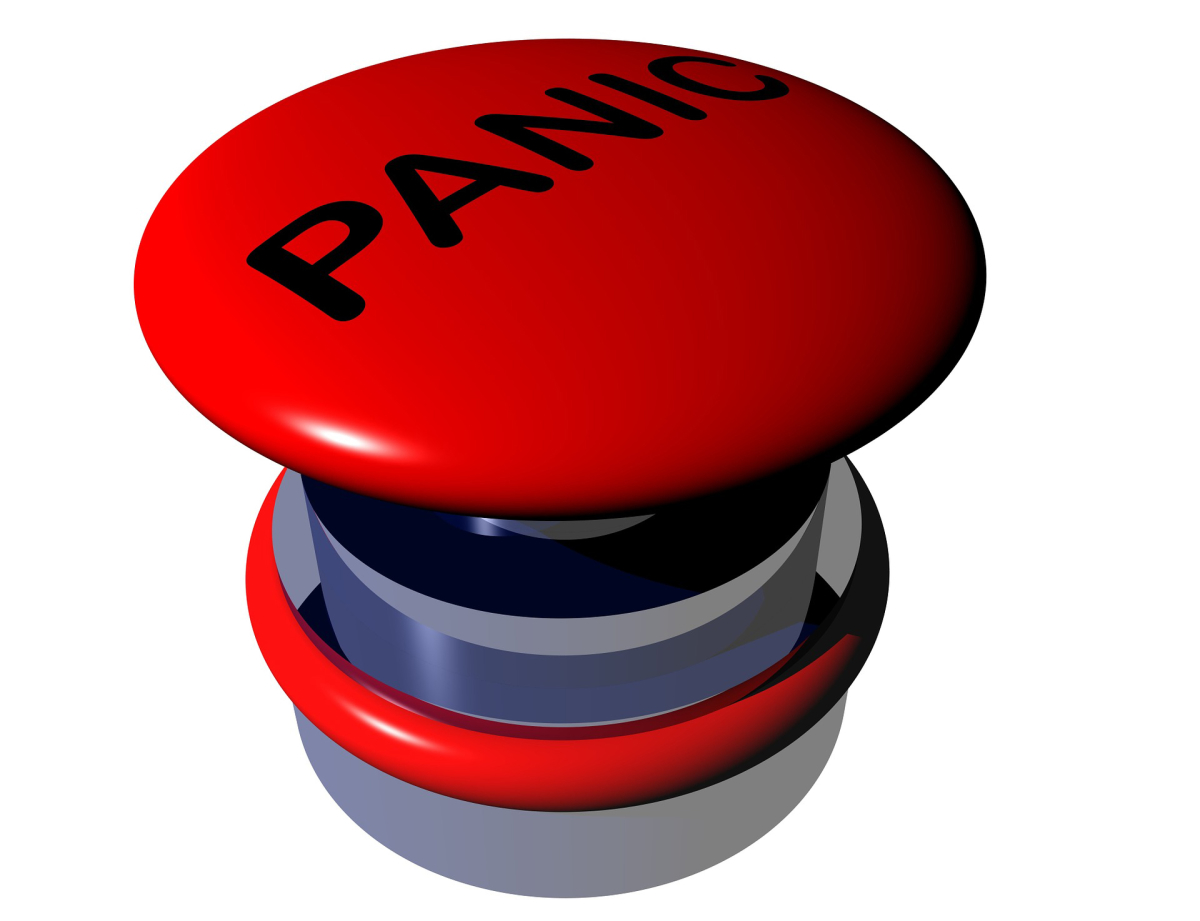We all experience feelings anxiety and unease at certain points in our lives, especially when we’re going through major life events like getting married, having a baby, moving house. Sometimes our anxiety can be so severe that it can leave us panicking. Having a panic attack can be scary and debilitating, leaving us feeling that there’s something wrong with us; if it’s quite severe it may leaving us think we’re having a heart attack and that we could be dying.
 During a panic attack your body experiences intense psychological and physical symptoms that can make you think you’re suffering from a severe breakdown. Panic attacks produce very real physical symptoms; there have been countless people who have had to be rushed to the hospital, to be told that they have had a panic attack.
During a panic attack your body experiences intense psychological and physical symptoms that can make you think you’re suffering from a severe breakdown. Panic attacks produce very real physical symptoms; there have been countless people who have had to be rushed to the hospital, to be told that they have had a panic attack.
Panic attacks can come out of the blue, even while you’re asleep (you can be woken up by one); if you have been worrying about something, or trying not to worry about something (suppressing your fears and worries can be a major factor) then you are more likely to experience a panic attack – also known as an anxiety attack.
Symptoms of a panic attack
A panic attack occurs suddenly, NHS describes it as ‘the abrupt onset of intense fear or discomfort that reaches a peak within minutes and includes at least four of the below symptoms.’ Most panic attacks last for five to 20 minutes. Some attacks have been reported to have lasted up to an hour. However, it can be, in cases such as these, it might be that one attack occurred after another with very little reprieve in between, and high levels of anxiety and panic were experienced between and after the attacks.
Some of the symptoms of a panic attack include:
- Palpitations, pounding heart, or accelerated heart rate
- Sweating
- Trembling or shaking
- Sensations of shortness of breath or smothering
- Feelings of choking
- Chest pain or discomfort
- Nausea or abdominal distress
- Feeling dizzy, unsteady, light-headed, or faint
- Chills or hot flushes
- Numbness
- Tingling / Pins or Needles
- Disassociating or feeling detached from yourself
- Scared that you’re losing control or you’re going crazy
- Scared that you might be dying
- Ringing in your ears
- A need to go to the toilet
Panic attacks are extremely unpleasant and can be very frightening. People can mistake them for heart attacks, heart disease, thyroid problems and breathing disorders. It’s always advisable to get yourself checked at the A&E or your GP, if you feel that you are experiencing debilitating physical problems – it’s good practice to rule out physical problems, before assuming it’s a panic attack.
People who do experience panic attacks, worry that it will happen again – they start making changes to their lifestyles in order to avoid panic attacks. When you know what brought it on in the first place; if you’re suffering from social anxiety and you have to give a talk, you may experience a panic attack prior to going on, or if you’re suffering from OCD, you may experience a panic attack if you’re prevented from carrying out a ritual or a compulsion – you can make the necessary changes. However, if it has come out of the blue, then that may leave you looking for signs – any sign that it might happen again. People stop exercising, thinking that the elevated heart rate might be a factor, they avoid going to certain places because they feel that may have triggered the attack. This in turn affects them feeling in control of their lives; if you fear the unknown, and fear how debilitating a panic attack can make you feel then you don’t truly feel in control of your life – that will increase feelings of anxiety, causing a circle of fear, anxiety and loss of control.
Panic Disorder
 The difference between a panic attack and a panic disorder, is that ‘normal’ panic attacks generally have triggers as discussed above; when a panic attack comes out of the blue with no apparent trigger – that is classed as a panic disorder. When we don’t know why we’re going into a panic attack regularly, sometimes it can occur a few times a week, we often feel that we can’t really talk about it with anyone. Some people feel ashamed; it can be extremely isolating and lonely to have to suffer with panic attacks and not know what to do, why they occur or what to say even if you wanted to. To those people I want to say that it is a treatable disorder. You can use psychotherapy to find out why you are experiencing panic attacks, you can speak to your GP to see what options you have for managing it through medication, there are ways that you can manage your attack through relaxation and breathing techniques, when you feel a panic attack coming on.
The difference between a panic attack and a panic disorder, is that ‘normal’ panic attacks generally have triggers as discussed above; when a panic attack comes out of the blue with no apparent trigger – that is classed as a panic disorder. When we don’t know why we’re going into a panic attack regularly, sometimes it can occur a few times a week, we often feel that we can’t really talk about it with anyone. Some people feel ashamed; it can be extremely isolating and lonely to have to suffer with panic attacks and not know what to do, why they occur or what to say even if you wanted to. To those people I want to say that it is a treatable disorder. You can use psychotherapy to find out why you are experiencing panic attacks, you can speak to your GP to see what options you have for managing it through medication, there are ways that you can manage your attack through relaxation and breathing techniques, when you feel a panic attack coming on.
Causes of a Panic Disorder
Over 2% of the population suffer from a Panic Disorder every year; it can severely interfere with your life. If you are suffering from a Panic Disorder, you are not overreacting to situations in your life, it is a disorder that does respond to treatment. Confide in your friends and family, and let them support you. We have a team of highly trained therapists that can help get to the cause of your disorder. A panic disorder can be caused by anything:
- It can be a response to a highly anxious and stressful time in your life.
- It can be brought on by trauma, or bereavement.
- Catastrophic thinking – if you find yourself constantly imagining the worst case scenario in every situation, your mind can be tricked into thinking that it will actually happen / or is actually happening, and it will then trigger anxiety symptoms that warn us of an impending threat to us.
It can be easy to think that we’ll manage our symptoms by ourselves, however if left untreated, panic disorder can become very debilitating, and can worsen over time. It can also increase your risk of developing other mental health conditions – Agoraphobia and Depression are common mental health problems that are linked to panic disorder.
If you want to talk to someone regarding the issues raised in this blog, please contact us. We are offering a free one week trial for online counselling.

